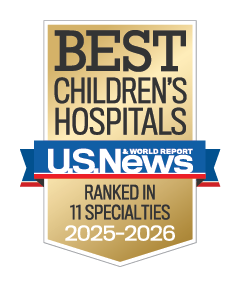Search Videos and More
 Video
Video
Better Beats for Tiny Hearts: The Fetal Cardiovascular Program
Learn why access to early fetal echocardiography is priceless and glimpse a future where providers in less resourced areas could deliver enhanced maternal-fetal care thanks to an advanced method of screening for heart abnormalities. Video
Video
Tic Talk: Current Perspectives on Tourette's and Similar Disorders
Delivering useful definitions and classifications, pediatric neurologist Ana Grijalvo Perez, MD, discusses tic characteristics, scales to assess severity, what's known about genetic influences, and guidance on when and how to initiate care for children bothered by their own repetitive behaviors. Video
Video
Straight Talk on Curves: Identifying and Managing Spine Anomalies in Kids
With a focus on the most common type of scoliosis, pediatric orthopedic surgeon Ishaan Swarup, MD, offers this guide to detecting and evaluating the vertebral deformities seen every day in the clinic Video
Video
The Neuropediatrician Niche: How a New Specialty Serves (and Soothes) Worried Families
Alicia Callejo-Black, MD, describes the neuropediatrician’s potential to enhance care access for patients with certain childhood neurological issues Video
Video
Gynecologic Concerns in Puberty and Adolescence: Strategies for Pediatricians
Gynecologist Sloane Berger-Chen, MD, delivers this information-packed talk on reproductive system care for pre-adult patients. Video
Video
Heart Failure in Children: Presentations, Causes & Workup
Pediatric cardiologist Othman Aljohani, MD, MPH, presents definitions of heart failure (HF) in infants and kids. Video
Video
Hip Arthroscopy: Applications and Benefits for Young Athletes
This brief video reveals the many hip conditions affecting pediatric patients that can be addressed through minimally invasive techniques – to resolve pain, restore quality of life, and minimize the risk of future arthritis Video
Video
Developmental Dysplasia of the Hip (DDH): A Guide for Pediatricians
Early detection and treatment of DDH, the most common orthopedic disorder in newborns, have major value, generally preventing the need for surgery and protecting joint health down the line. Video
Video
Sticks and Stones: Primary Care Pathways for Pediatric Broken Bones
With fractures making up 25% of injuries in children, senior physician associate Jessica Treiber, PA-C, MPAS, MPH, wants to ensure pediatricians don’t miss the most common bone breaks. Video
Video
Celiac Disease in Children: Essentials of Screening, Diagnosis and Treatment
As pediatric gastroenterologist Jennifer Duong, MD, explains in this guide for primary care, celiac disease (CD) is common and can affect many organ systems. Video
Video
Cardiovascular Genetic Testing: Potential Benefits for Children and Families
Christina Theodoris, MD, PhD, and Rachel Farrell, MS, CGC, describe what this clinic offers: the many types of tests available, what they do (and don’t) reveal, the value of carrier testing for family planning, and how experts determine which tests are appropriate. Video
Video
Navigating Knee Pain in Young Athletes: Identifying Injuries, Making Treatment Plans
Starting with a review of the joint's complex anatomy, this talk from pediatric orthopedic surgeon and sports medicine specialist Nirav Pandya, MD, delivers insights on determining urgency and getting to a diagnosis when an active child or teen presents with knee discomfort – whether that's agony or a dull ache.


